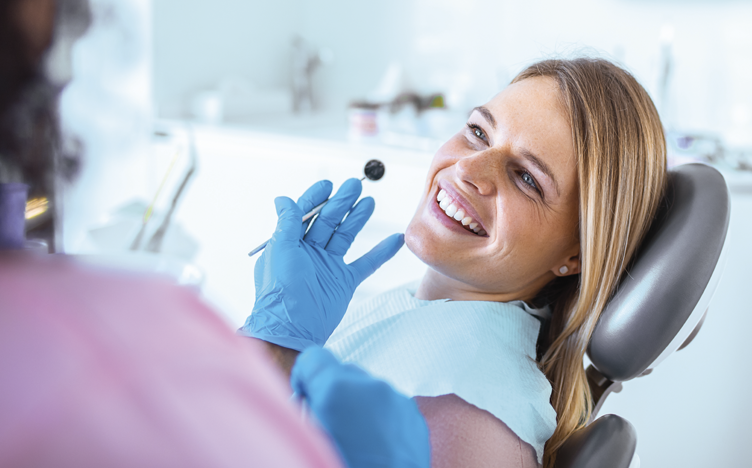Essential oils have seen a rise in popularity over the past few years. These fragrant, highly concentrated oils are extracted from plants, and there are at least 3,000 varieties. Some of them have been used as natural medicines for centuries. Devotees claim that essential oils can be used to treat everything from dandruff to heartburn, boost moods, increase energy, and even improve learning and memory.
Dental trend spotlight: The ins and outs of essential oils
How are essential oils used? Do they work?
Whether through aromatherapy (diffusing the oils and inhaling their fragrance), ingestion or application directly to the skin, using essential oils is simple.
But for all the positive buzz, do essential oils work? And if they do, how do they affect your oral health? The answers are a little complicated, and it’s worth looking at both the benefits and potential side effects.
Possible benefits of essential oils
Essential oils can help:
• Fight cavities and gum disease. Some essential oils, such as tea tree and eucalyptus, are added to mouthwashes and toothpastes. In this capacity, they can help reduce the amount of bacteria in your mouth. Direct application isn’t necessary.
• Treat thrush. Thrush is an infection that causes white patches in your mouth. Clove, cinnamon, lemon and tea tree oils contain antioxidants that help fight a thrush infection.
• Relieve anxiety and pain during stressful times. Lavender and orange oils are a favorite for aromatherapy. They can help promote relaxation and stress relief.
• Freshen up your breath. The minty flavor and cool clean sensation you get from toothpaste, gum and mouthwash often comes from peppermint essential oil.
Possible concerns with essential oils
Side effects of essential oils include:
• Heartburn, nausea and vomiting. These issues can be especially common if you consume essential oils without first diluting them.
• Fatigue, headaches and dry mouth. These side effects can occur when you consume high doses of an essential oil.
• Allergic and toxic reactions. You may experience rashes, welts, blisters and a burning sensation when applying essential oils directly to your skin.
• Teeth and gum damage. Applying essential oils directly to your mouth can cause rashes, welts and blisters, just like applying it to your skin.
• Potentially serious complications like poisoning, seizures, and kidney and liver damage.
As you can see, small amounts of essential oils can have a beneficial effect when properly applied. That’s why certain essential oils are already added to many commercially available products,. Heavy doses of essential oils that are directly ingested or applied to the skin can prove to be too much of a good thing, however!
The verdict: You should check with your physician and dentist first before using essential oils. This is especially true if you plan to drink or eat the oils or apply them directly to your skin. Extra caution is advised for children, teenagers and women who are pregnant or breastfeeding. If you’re unsure of the safety of a dosage, the best precaution is to simply not take any.
Is nitrous oxide the right solution for you?
Dental visit jitters aren’t as uncommon as you may think.
Seeing red when you brush and floss?
You can keep your gums healthy by improving your daily hygiene regimen and having a balanced diet.
A workout for your brain
Just like you exercise at the gym, you can exercise your mind to make it healthier and stronger. Learn more.








